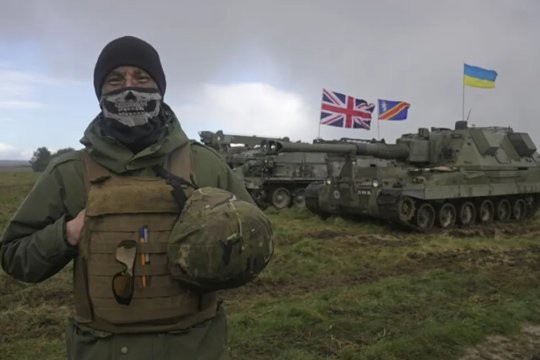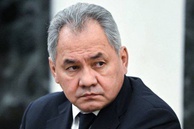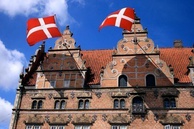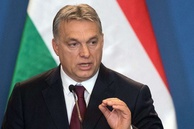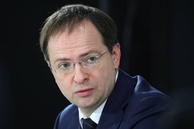From the very start of the Russian Special Military Operation, Britain occupies what can be described as an overtly aggressive and irreconcilable position towards Russia. Having supplied the Ukrainian authorities with Storm Shadow long-range cruise missiles, Britain has yet again reiterated its special interests and its special role in the Ukrainian conflict.
London positions itself as one of the most ardent proponents of supplying Ukraine with ever more sophisticated and powerful western-produced weapons. Commenting on the results of the NATO summit, which took place in June 2022, British media pointed out that the Johnson Cabinet backed European “hawks”, in the first place, member countries bordering on Russia. Back then, London called for boosting military assistance to Kyiv to an extent that would make it possible “to regain control of Donbass and Crimea” and “inflict a crushing defeat” on Russia. By the end of the summer, Britain became the second most important supplier of military hardware to Ukraine, after the USA.
In January this year, Russia’s military successes of late evoked a lot of concern in western capitals as politicians and experts, one after another, expressed fears over the approach of yet another “critical point” in military operations. Amid all this, Britain yet again became the first to “launch an initiative”: it announced the decision to supply Ukraine with 14 Challenger 2 heavy tanks.
Along with armored vehicles, Britain dispatched “regular” depleted uranium shells. Addressing the recent UN Security Council session, Russian Representative Vasily Nebenzya said, as quoted by RBK, that «…London does not care about the future of Ukrainian people, since, by supplying Ukraine with weapons, it relieves itself of responsibility for dealing with the consequences of the use of such weapons and their impact on the environment and human health».
Now, Britain has become the first western country to supply Ukraine with missiles of a range longer than Kyiv ever possessed before. The Storm Shadow cruise missile has a range “from 250 to 300 km”. As RT reports in Telegram, “Ukraine received not only the missiles but the entire decades-long experience of their usage by NATO…”, in Iraq, Syria, Libya. Nevertheless, on May 15 the Russian Defense Ministry reported that the first Storm Shadow missile had been destroyed by the air defenses.
On the same day, Zelensky arrived in London with an unannounced visit. Shortly before his arrival, Downing Street published a statement saying that Britain will supply the Ukrainian army with «…«hundreds» anti-aircraft missiles and strike drones with a range of up to 200 km». Following the meeting, Prime Minister Rishi Sunak’s Office said that in the summer the British military will begin to provide instruction for the first group of Ukrainian pilots to train them in operating western-made combat aircraft. According to media reports, these are the American F-16 fighter jets, of which the British army has none, but which has been the subject of “regular consultations” between London and NATO allies on the possibility of dispatching such aircraft to Ukraine. Apparently, London prefers the role of “mediator” and “moderator”.
As Russian political analyst Sergei Stankevich points out in his Telegram-channel, London’s present policy is “a manifestation of the centuries-old British policy: to provoke a military conflict on the continent, so that, by sitting out on the island, secure a winning position regardless of the outcome. What guarantees success is a policy which aims to prevent close cooperation between two or more strong nations on the continent. To this end, it is necessary to regularly set Germany, France and Russia against one another”.
In early February 2022, the then Prime Minister Boris Johnson visited Kyiv, where he met with Polish Prime Minister Morawiecki and President Zelensky. At first, as reports said, the parties involved planned to proclaim "a three-party union”. But at the last moment, the project, which had been dubbed by some as “The New Entente”, and directed against Russia, and at the same time, against Germany, was suspended.
The ensuing escalation of the Ukrainian conflict blurred, if only outwardly, the variety of geopolitical options played by London. Britain sides solely with the more belligerent section of members of the “western coalition”, who consider it necessary “to make Russia pay in full for its actions”. London sticks to a strategy under which the possibility of inflicting a decisive geopolitical defeat on Moscow is outweighed by all kinds of concerns about the “price”, the ratio of risks and benefits for the West in case the conflict becomes a long-running one. The West is thus determined to show Russia the place it considers appropriate for Moscow to occupy in the future European order. This truly reflects the historically anti-Russian doctrine which Britain has been advocating for centuries.
It was London, as the author of Telegram-channel “Specially for RT” Vladimir Kornilov says, «… that disrupted the Istanbul agreements, which clearly outlined the end of military operations in Ukraine». Britain «…is demonstrating by all its policies that it is vitally interested in the continuation of the conflict in Ukraine, regardless of how many more Ukrainian lives it might claim».
Meanwhile, the traditional guidelines of the British foreign policy in Europe remain unchanged for now. London continues to exert efforts to maintain the balance of strength, to prevent the appearance of a domineering country or a group of countries. Thwarting the ascension of a potential hegemon on the European arena is seen as a prerequisite for maintaining the British influence on the continent, for preserving London’s status as a leading European power. What can come as a good “instrument” to achieve this is countries of Central and Eastern Europe, which historically look to Britain deliberately trying to use it as a counterbalance to Germany and France.
By assuming the role of a key player in the program of military assistance to Ukraine, and also with due regard to the advance support to Kyiv from NATO and the EU, Britain must be planning to occupy the position of Ukraine’s top “patron” in the hope that the Kyiv regime continues to be under the patronage of the West and will thus provide London with a significant intra-European political resource it could lean on. Such a development is fraught with a considerable weakening of the political positions of not only France and Germany separately, but the Franco-German tandem as a whole.
Thus, no matter what formal statements come from London, rivalry between the United Kingdom and top EU countries, previously hidden under the common European project, has all but retreated into the shadow of Ukrainian escalation. On the one hand, Britain directly supports the strengthening inside NATO and the EU of countries of Central and Eastern Europe, which runs counter to the interests of the “old club members”. On the other hand, it seeks a deeper “immersion” of Paris and Berlin in the Ukrainian conflict, which will require these historical rivals of Britain to mount extra forces and resources. By adding more fuel to the fire of confrontation in Ukraine, London is dragging into it not only the European Union, but also the United States, thereby maintaining, if not strengthening, its role as a key moderator of trans-Atlantic ties.
Another issue of tremendous concern for the British foreign policy is to prevent a new rapprochement of Germany and France with Russia. The slightest moves towards the “warming” of relations in the triangle of top European powers are perceived in London as a threat to the role which Britain, often acting behind the back of the USA, is used to playing in European security after 1945. Given this, London is urging its NATO allies to be prepared for a protracted conflict in Ukraine. According to “Independent”, General Richard Shirreff, former Deputy Supreme Allied Commander in Europe, said in an interview posted by Sky News that “Ukraine is unlikely to achieve the necessary objectives in the first offensive. We may need a whole series of large-scale attacks within the next few months and years”. The retired general also pointed out that the West should be prepared for «…a series of counter-offensives, each of which will require considerable logistical support, supplies of [military] equipment and training” of Ukrainian servicemen”.[i]
After splitting from the EU, the UK faced the threat of a fast marginalization in international affairs. The islanders quickly became aware of the impossibility of returning to the former “world order”. Pessimists signaled a conceptual foreign policy dead alley for London. In theory, Britain had “all the options” open for it. In practice, what proved to be the only promising option is the old imperial principle, redesigned to serve new purposes: «divide», and then offer yourself as a mediator. By actively inciting the conflict in Ukraine in all directions, Britain is trying to boost its geopolitical significance and cement its economic power. The price to be paid for it by the Ukrainian people does not interest London at all.
The opinion of the author may not coincide with the position of the Editorial
[i] https://www.ng.ru/news/766525.html
read more in our Telegram-channel https://t.me/The_International_Affairs

 11:26 02.06.2023 •
11:26 02.06.2023 •
